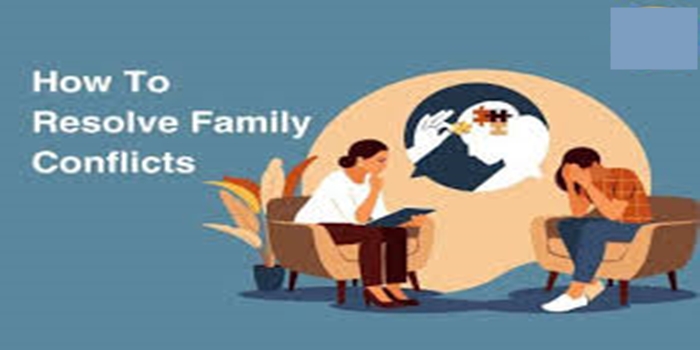In this article, we discussed the meaning of family conflicts, the causes of family conflicts, signs, we also talked about the tips for solving family conflicts
Definition
Family conflict is a disagreement or dispute between family members that can be caused by differences in values, beliefs, or behaviors. It can occur between parents and children, siblings, or extended family members.
Family conflict can be a normal part of family dynamics. However, unresolved conflict can lead to arguments and resentment. It can also have negative effects on children, including:
Emotional, social, and behavioral problems
Difficulty concentrating
Poor educational achievement
Some signs of family conflict include:
Not listening to each other
Giving the silent treatment
Arguments that end without a resolution
Shouting, swearing, or bickering
Undermining each other
Causes of Family Conflicts
Family conflicts can be caused by a number of things, including:
Financial issues
Families can face conflict over how to spend money, who pays for family events, and inheritance. Financial challenges can arise from job loss, gambling, uncontrolled spending, or other reasons.
Communication issues
Misunderstandings can lead to hurt feelings, tension, and conflict. When people have difficulty communicating their thoughts and feelings, they can become worried, confused, frustrated, or angry.
Differences in values and beliefs
Family members may have different opinions on topics such as religion, politics, and lifestyle choices.
Life changes
Changes in family dynamics can be difficult to get used to and can lead to disputes. These changes can include the arrival of a new baby, the departure of an older child, or the death of a family member.
Avoiding difficult conversations
Families may avoid addressing conflicts for fear of causing tension or damaging relationships. This avoidance can make it more difficult to resolve issues in the long run.
Here are some effective ways to deal with family conflicts:
Communicate openly: Encourage open and honest communication, and listen to what others are saying.
Be empathetic: Try to see the situation from others’ perspectives and acknowledge their differences.
Focus on solutions: Try to refocus the conversation on solutions rather than personal opinions.
Avoid blame: Don’t blame or name-call.
Be respectful: Show respect to others.
Admit mistakes: If you realize you’ve done something wrong, apologize.
Practice self-care: Practice healthy coping techniques, such as self-care, adjusting your mindset, and seeking social support.
Tips for Dealing with Family Conflicts
Staying calm
Putting emotions aside
Not interrupting others
Asking questions to check understanding
Communicating clearly and honestly
Avoiding bringing up unrelated issues
Using the right body language
Focusing on facts
Allowing everyone to speak
Being mindful of language
Conclusion
Some causes of family conflict include: finances, rivalry between siblings, lack of consensus on child discipline, and poor relationships with extended family members. One strategy for resolving family conflict over money is to try to empathize with the other person to understand why they want the money. Then, you can make a fair proposal based on what you’ve heard.

